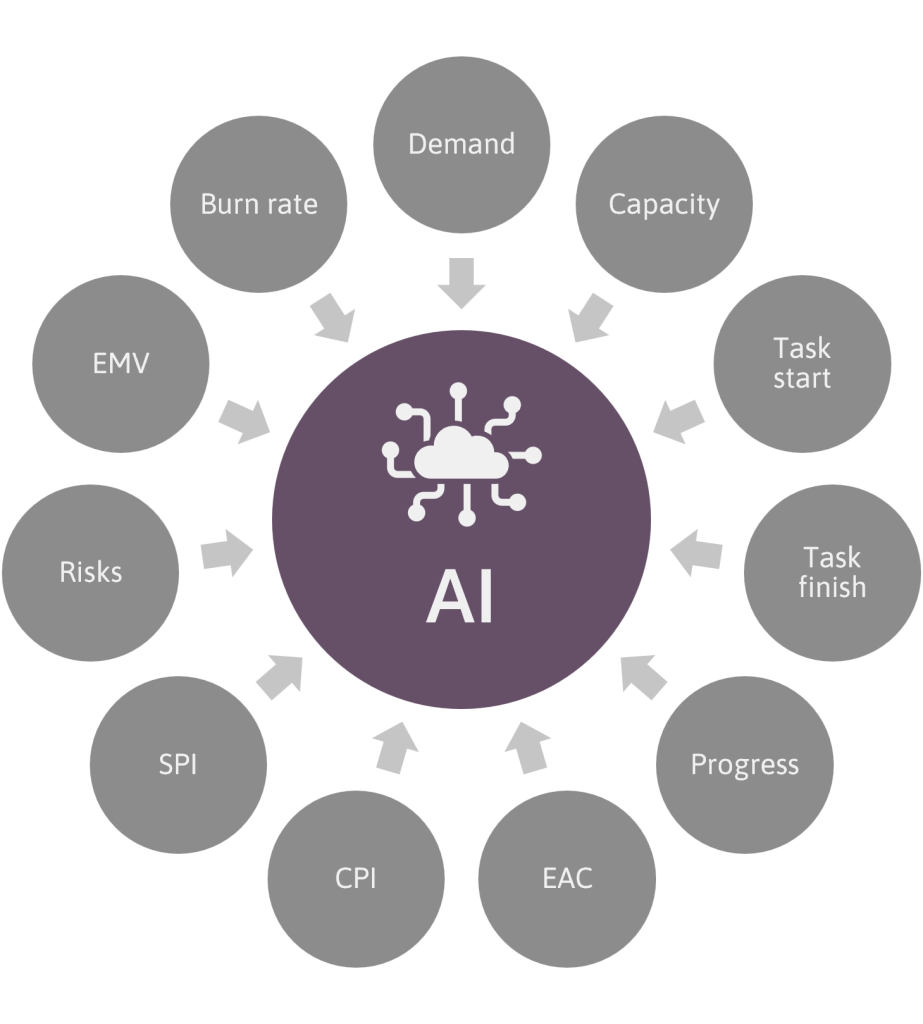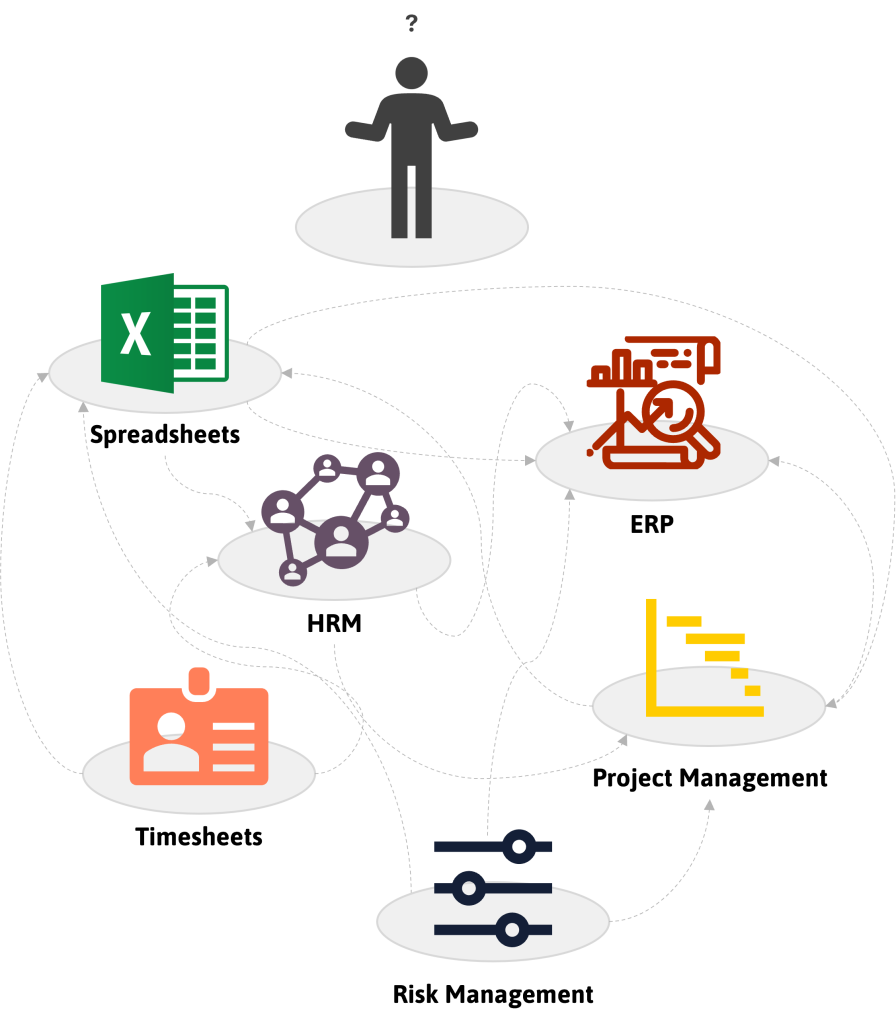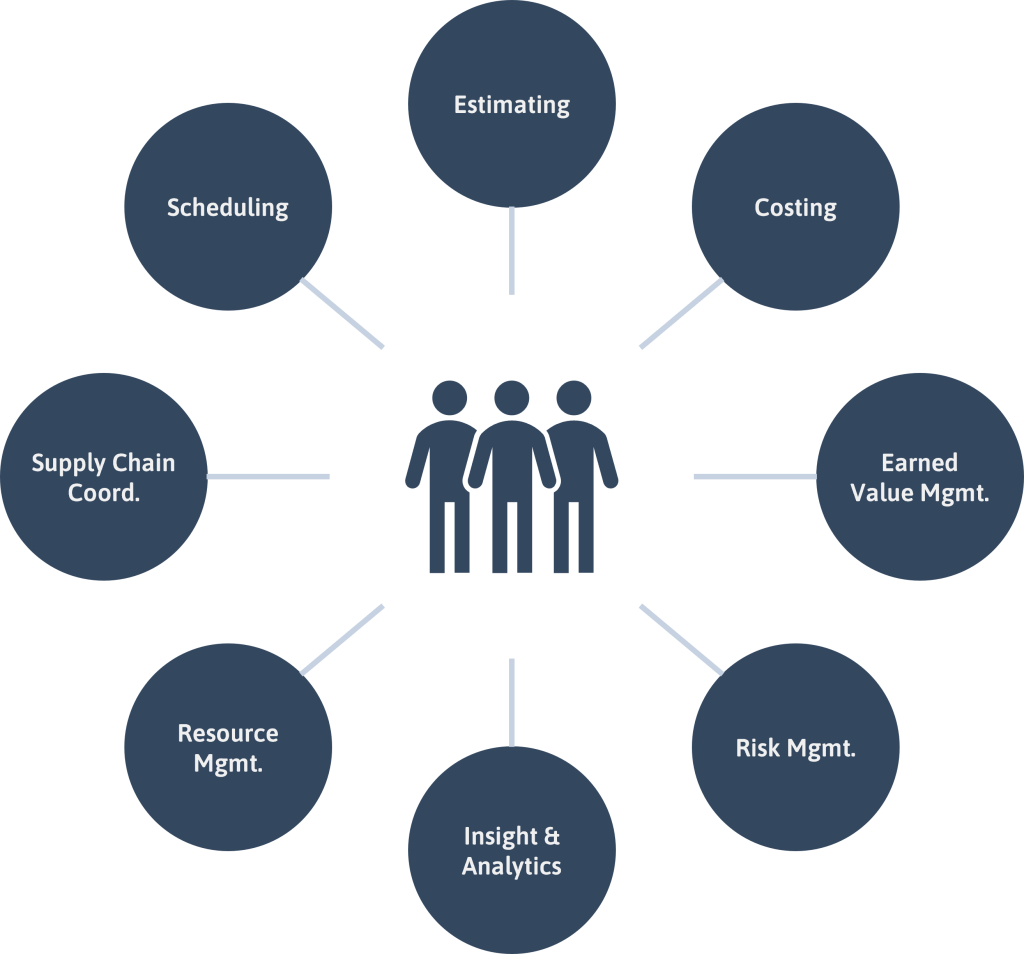Breaking Through The Hype Of AI In Project Business

Artificial Intelligence (AI) is currently surrounded by an incredible amount of hype, making it essential to keep things in perspective and understand how AI truly works. While generative AI tools like Chat GPT have garnered significant attention, they represent just one narrow use case.
The potential applications of AI in project management are still largely limited, and many remain marginal or entirely unattainable for most businesses at this stage.
As project-oriented business is projected to surpass $20 trillion in the coming years, it’s no surprise that there is a keen interest in how AI might transform this field. Furthermore, since 91.5% of projects end up over budget or behind schedule, AI’s ability to alleviate this problem is appealing.
However, before AI can be effectively utilized in project business, there must be a foundation of structured and time-phased data. Unfortunately, many project business organizations lack both the necessary data and the reliable processes to generate such data.
The Reality of AI in Project Management
The current practical use of AI in project management has been limited. Despite the excitement around AI, most of its applications in project management today are relatively modest. Tools that create project status reports, prioritize tasks, and manage calendars offer some value, but they don’t fully leverage the potential of AI.
In many cases, what is labeled as AI is simply automation or digitization, such as automated workflows or AI that is used for note-taking and summarizing meetings.
The Fundamental Goal of AI in Project Business
The ultimate goal of AI in project business is to provide a predictive model that can forecast and optimize project schedules and budgets. Ideally, AI should be capable of suggesting or automatically implementing changes to enhance delivery and cost efficiency. However, this advanced use of AI remains largely theoretical and is considered by many to be a distant goal.
The question is, what do we need to attain this goal?
The Importance of Structured Data
AI requires vast amounts of structured data to function effectively. For AI to make accurate predictions, project data must be captured and stored in a time-phased, structured format. This includes both operational and financial data. For example, to predict the weather, AI needs certain metrics recorded over time, such as atmospheric pressure, temperature, humidity, and wind patterns. With this data leading up to the present time, AI extends these based on historical patterns to make predictions about the weather.
Similarly, project management AI needs to process real-time data and historical metrics to provide meaningful insights. Key performance indicators (KPIs) such as EAC, variance, Earned Value, Cost Performance Index (CPI), Schedule Performance Index (SPI), resource capacity vs demand, burn rate, risk items, and task progress need to be consistently updated and monitored.

With this time-phased data on many projects, an AI could start to see patterns and make predictions regarding schedule delays and budget overruns. With this information, a human or AI could make changes to the project plan or resource allocations to optimize the project’s outcome.
Overcoming Data Silos in Project Business
Although this scenario above represents what everyone hopes for from AI in project management, most project businesses simply lack the data necessary for AI to be utilized effectively. Most project businesses suffer from fragmented data across multiple disparate applications.
Typical project data silos include project scheduling applications, resource management tools, project accounting and ERP financial data, time keeping systems, and many others. However, the most used project management application is spreadsheets, which rely on manual processes and files stored and shared all over the organization.

This lack of integration means project businesses cannot produce the data AI needs to make predictions and help optimize the project. Moreover, most project businesses lack the governed processes needed to produce reliable data.
While this current situation hampers AI’s ability to use data effectively, Project Business Systems (PBS) offer a solution by integrating all core processes and data into a single comprehensive system.
Building the Foundation for AI with Project Business Systems
To leverage AI in project business, organizations must standardize and structure their data. This requires integrating all processes and data into a unified business system. PBS stands out as a comprehensive solution designed to manage all project-related data and processes, providing a solid foundation for AI.

PBS offers three critical elements for optimal AI adoption:
- Standardization: By standardizing and governing all project processes in a controlled system, PBS ensures consistent data and metrics.
- Integration: PBS seamlessly connects all core project business processes, creating a unified source of truth.
- Automation: PBS automates workflows and data production, providing time-phased metrics in real-time that are ready for AI analysis.
Training and Deploying AI in Project Business
Once the foundation is in place, AI can be trained on historical project data to predict outcomes for current projects. This involves feeding the AI with metrics from past projects and their outcomes, allowing it to learn and make predictions.
Additionally, leveraging data from a community of companies can enhance AI’s accuracy, creating a more robust predictive model. While we may be far off from this fully integrated world, this is the ideal state for AI.
The Future of Project Business with AI
Project business is a massive global economy, yet most projects finish over budget or behind schedule. That means we are wasting billions if not trillions of dollars every year due to poor project management. The lack of integrated business systems and fragmented data perpetuates these issues. By first adopting PBS, companies can transform their project management practices, achieving greater efficiency and accuracy. Then, we will be ready to fully use AI and take those gains to the next level.
In conclusion, despite the hype, AI does have the potential to revolutionize project business, but it requires a solid foundation of structured, integrated data. Project Business Systems provide the necessary infrastructure to harness AI’s capabilities, offering a path to more predictive and optimized project management. The impact of this paradigm shift could be profound, driving significant improvements in project outcomes and business performance.
Matt Mong is the Project Business Systems Chief Category Officer at Adeaca.




